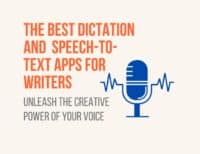I’m pretty confident most of you know how to write a decent sentence: subject–predicate, noun–verb. However, when it comes to getting fancy, ambiguity can happen. And you can confuse your readers to boot.

Let’s take “only,” “both . . . and,” and “either . . . or,” for example. Where do you put them? And why does it matter?
How to Use “Only”
Sometimes it doesn’t matter, as in “I only have one husband” or “I have only one husband.” (Even though the first one is grammatically incorrect and I personally wouldn’t use it, we all know what the writer means.) But how about “Only I have one husband”?
This means that everyone in the whole world except you is a polygamist.
Do the following two sentences mean the same thing?
I went only horseback riding for an hour.
I went horseback riding for only an hour.
Are you stuck? Here’s the rule:
Therefore, in the first sentence, I did one activity during one hour, whereas in the second sentence I might have done all sorts of sports all day long, but as far as horseback riding is concerned, I did that for an hour, no more and no less.
Let’s take a few more examples:
Jane only likes Dave.
Poor Dave; Jane just wants to be friends. (She doesn’t love him, adore him, or want to marry him.)
Jane likes only Dave.
Dave has a bit more hope over here, as there don’t seem to be any other men in Jane’s life.
Only Jane likes Dave.
Hmm, that might be a red light for Jane, if Dave doesn’t have any other friends. Maybe she should stay away from this dude.
How to Use “Both . . . And”
Now that you’ve got “only” down pat, it’s time to upgrade. The rules for the “both . . . and” combination are basically the same as for “only”: they qualify or modify the word or phrase that goes directly after them. However, there is one extra rule:
The word or phrase that “and” modifies must be the same part of speech that “both” modifies.
Here are some examples:
I enjoy both The Write Practice and Bulletproof Writing.
In other words, there are two blogs that I enjoy. (Notice that both phrases in italics are nouns.)
I both read and enjoy The Write Practice.
I don’t just read it and hit Delete. (The words after “both” and “and” are verbs.)
Both Jane and I read The Write Practice.
We are but two of Joe’s myriad fans. (Jane and I are both nouns/pronouns.)
For more practice, think through these book writing examples:
I am writing a book on both George Washington and Thomas Jefferson.
I am both writing and narrating a book on George Washington.
I am writing a book both on and in the home of George Washington.
Both Jane and I are writing a book on George Washington.
I am writing both a book and an essay on George Washington.
How to Use “Either . . . Or”
The “either . . . or” combination is a bit trickier, but now the fun begins.
Although the “both . . . and” rule applies to “either . . . or” as well, writers tend to get all weird about “either . . . or,” complicating matters unnecessarily. Just remember that “either” and “or” both qualify the word directly following them and need to be the same part of speech, and you’re good to go. Check these out:
Either you eat your peas or I eat your peas.
What a nice mommy! But a bit of a sucker, don’t you think?
Either you eat your peas or you throw your peas.
Well, that’s true for most children under the age of two. But you’re seventeen, so it’s not so nice.
You either eat your peas or throw your peas.
This is a slight modification of the previous example. Because the pronoun “you” comes before the word “either,” we don’t have to repeat it on the other side of “or.”
You eat either your peas or my peas.
Sneaky mommy; she doesn’t want her peas either, and is hoping to fob them off on you.
You eat either your peas or your liver.
I don’t mean your physical liver, of course, just the brown stuff on your plate. But if you don’t eat something, I will eat your heart out.
Grammar Hacks Make Writing Simple
Well, there you go; easy-PEASy, right? Grammar doesn’t have to eat your heart out, or even your liver. You can absolutely nail it with just a few hacks. Good grammar helps you get out of your own way, making your prose clearer and allowing your personal voice to shine through.
Does learning grammar send chills up and down your spine? Do you have any hacks that make learning the rules easier? Let me know in the comments section.
PRACTICE
For fifteen minutes, pretend you’re a high school football coach dressing down your team for a poorly played game—in the semi-finals. Read them the riot act and throw in a few ultimatums, using “only,” “both . . . and,” and “either . . . or.” Paste your piece below in the comments, and leave feedback for your fellow writers.







Great point, I never thought about these small but important facts on writing.
Hi, James, and thank you very much for taking the time to write. I’m glad you got a new perspective from my post. It’s so true: these little writing issues can absolutely make the difference between an acceptance and a rejection letter. When I was doing acquisitions for a publishing company, these subtle points influenced my decisions more often than not.
Deena
A friend advised me that I can determine if something is passive voice by adding the phrase “by zombies” after the verb. If the sentence works, I’ve got passive voice. Plus, it’s kind of fun…the dog was fed BY ZOMBIES. Her wounds were stitched BY ZOMBIES. It’s like a smorgasbord of terrible zombie movie plots. Also fun: by goblins, by unicorns, and by imaginary friends.
I absolutely love this tool! Thank you!
Bruce, you are so welcome, and I appreciate your letting me know you have found value in it.
Best, Deena
Jennifer, I LOVE this hack! With your permission, I will share it with my tribe on my next post. Thank you for sharing it, and all the best, Deena
hmmm…wish I could tell you the original source to credit. All I know is that my friend found it on twitter.
Also, I think saying “were (anything) by” or any phrase that shows something is done to someone or something is using the passive voice.
Well, I used to be both perplexed and dismayed by either… or 😉
Andy, I’m glad you are no longer either perplexed or dismayed.
Deena
“Listen, I’ve had enough of your backtalk,” Coach Furman said, his face turning redder than I’d ever seen it. “I’m the boss and don’t you forget it! You can either listen to me or get off this team!”
He spun around to look at Joe Spunk. “You’re not only captain to be BMOC, you need to set an example for the other guys—got that?”
“Sure coach. I both got it and will do it.” Joe said.
Clyta, I love this! Not only for your use of both/either/or, etc., but for the marvelous description and perfect dialogue. What you wrote is so real and unaffected. And I love how you start in the middle instead of “Coach Furman walked into the room.”
Thank you very much for sharing this.
Deena
I’ve been learning Japanese. Why should I speak only one language?
One of the funny (peculiar) things about studying Japanese is that I’ve learned a lot about English in the process. One of the things I’ve learned (but certainly not the only thing) is how to use “particles.”
Particles are little words in Japanese that don’t mean much without a context. They always come after the word or phrase they modify. Because of this, particles are also referred to as “post-positions.” The position of the particle is AFTER the word or phrase it modifies. It appears only after the word or phrase it modifies. If it came before the word or phrase, it would be a pre-position.
Wait, that word “pre-position” looks a lot like “preposition.” As it turns out, that is exactly what a preposition is: a little word that doesn’t mean much by itself, but which modifies the word or phrase it is placed BEFORE. Remember that rule about not ending a sentence with a preposition? That wasn’t something some schoolmarm made up to frustrate her students. It is simply how prepositions work. If you end a sentence with “at” or “of,” that little word no longer appears before another word or phrase. Whatever function “at” or “of” is serving in such a sentence, it isn’t that of a pre-position.
So, by learning Japanese, I have learned more about my native language. And now, when someone asks me a question, I’ll be able to answer in either Japanese or English. Heck, if I want to, I can answer in both Japanese AND English! I am no longer confined to responding only in one language.
Domo Origato, Bruce — did I get that almost right?
What you wrote is so interesting. I am also bilingual, and I definitely learned some English grammar from my second language.
I love your pre-position/post-position explanation. I hope to use it on my blog one day (with proper attribution to you, of course).
BTW, the new “rules” allow one to end a sentence with a preposition, although we purists do it while holding our noses.
All the best, and thanks for contributing to the conversation.
Deena
Technically, you would write どもありがとう (domo arigato) although ありがとうございます (arigato gozaimasu) would be more likely for a native Japanese speaker.
I am aware of the “rule” which says one can end a sentence with a preposition, but I beg to differ. While you COULD end a sentence with a word which ORDINARILY would be a preposition, it would no longer be a preposition because it wouldn’t come before anything (except the period). It is not a preposition if the end of the sentence is where it’s at. 😉
Wow! Japanese–wonderful. As Americans we are so reluctant to learn another language as if the entire world should “learn to speak English.” Thanks for your grammatical suggetions.
どういたしまして。
Thank you for this reminder. I am having a hard time with grammar but reading daily your blogs make it easier for me to work on it. This is definitely worth sharing. 🙂
I’m so glad I am able to help, Ana. Keep at it and soon it will be second nature.
All the best,
Deena
The coach is both an idiot and a jerk! He actually said ” Look youse guys, either we win tomorrow or we don’t.” Neither brilliant nor comforting.
🙂
;-}
I like that use of only and neither
“Tommy, you threw the ball to only Sam that entire fourth quarter. Jack was wide open! And, in most cases, closer to the posts. And Sam, you either run it to the end zone or throw it to someone who will, but you never let the other guys have it. Both Franklin and Seventy-Three clearly did their scouting; they knew exactly how to steal that ball from you. At least scouting Sam was the only thing Seventy-Three got right last week. But, it doesn’t really matter now, does it? Look, I don’t want to throw around either blame or guilt, but I want you boys to see what went wrong today. I need you to learn both how to recognize what’s happening in a game and how to deal with it. I can’t move you like chess pieces, the game is really up to you boys—men. You men are capable of winning the championship, and while many factors affect these games, the only thing you can control is how you play. So buck up, walk out of here with both dignity and humility, and get excited for next season when we dominate the finals!”
Wow, Sammy, nice one! You got the onlys and the eithers down pat and I like your voice. Thank you so much for sharing this. All the best, Deena
Hi, TT. What a great attitude, and so well said. I hope I can help you stare down grammar and fear it no more. Best, Deena
“Ok team, that was a rough game. Not our proudest moment.” Coach Trello slowly pivoted around the locker room to make eye contact with both players and assistants. “John, remember that this is a team sport. Either you play as a team, or you are off the team.” John’s head drooped towards the floor.
“Travis, you’ve got to remember to look at both where you are going and who is around you. Your throw was way off because you tripped over number 33!” Travis slowly nodded his head.
“Defense, you really have only one job- DEFEND! Either you block the other team, or I will get the girl’s volleyball team out here to teach you!” A low murmur slipped through the room.
“Finally, the only way we are going to make it to the finals is to play football better and to want it more!” Coach paused expectantly, waiting for his speech to energize the team. Instead, the boys quietly began undressing; no one even looked in his direction.